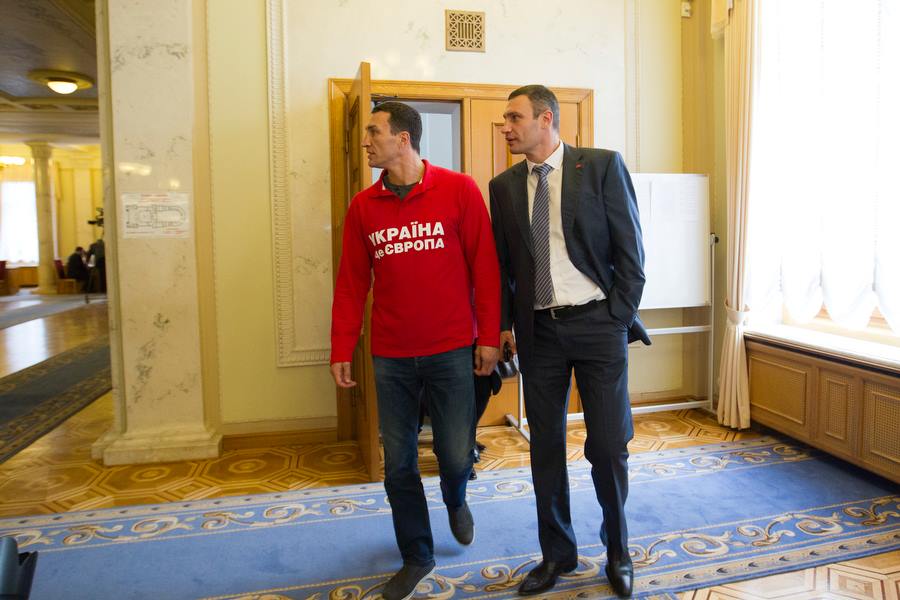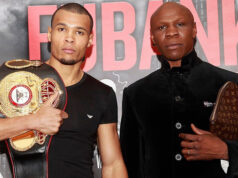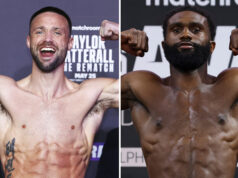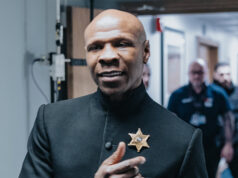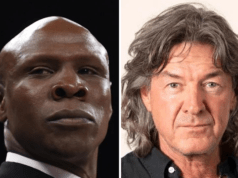Those watching TV news stories on the outcome of the Ukrainian elections might have noticed the clean-cut, towering giant sharing the stage with President-elect Petro Poroshenko. Although cut out of most of the footage I saw, even in a glimpse the presence of Vitali Klitschko, former WBC heavyweight champion, is unmistakable. “Dr. Ironfist” shared the stage with Poroshenko, candy mogul and industrialist, because he is the leader of an allied political party who had his own election victory to speak on, namely bagging the mayor’s office in Kiev.
The municipal election win cements Klitschko’s future in Ukrainian politics in ways that have gone largely unremarked in the mainstream media, even in articles focused on Big Vitali and just Big Vitali. Most obvious is that Klitschko is now the chief executive of the largest city in Ukraine, and with a commanding electoral mandate of 57%.
Yet that outcome also points to brighter prospects down the road for both Klitschko and his party. Although their ally Poroshenko served as Minister of Foreign Affairs under the controversial “Fatherland” Party boss Yuliya Timoshenko, he also served briefly as Economics Minister in the Party of Regions government that was overthrown early this year, and ran as an independent.
The 2014 elections therefore suggest a shift in the Ukraine away from the old Party of Regions-Fatherland two-party dominance, and at least towards a widening of the political field. In the 2012 elections Klitschko’s party, the Ukrainian Alliance for Democratic Reform, won 14% of the vote to become the third largest political party in Ukraine. With Poroshenko having carried the Presidential election as an independent, beating Timoshenko herself by a margin of 54% to 13%, and Klitschko having won Kiev by an even larger margin, one can only wonder how the Ukrainian Parliament might look if elections for that body were held today.
Another thing Americans might not realize is how often a successful mayor of a major city vaults into the pinnacle of national politics in Europe, especially since such a thing is so rare in the United States. Yet to just name a few, Turkey’s Recep Erdogan, France’s Francois Hollande, and Italy’s Matteo Renzi all rode mayoral success into their current Prime Ministerships. In the UK, Boris Johnson has become a national figure in Britain due in large part to the platform his tenure as Mayor of London has given his own personal charisma, and he is often spoken of as a future contender for party leader and British Prime Minister.
While politics is by its nature dictated by events and the situation in Ukraine remains extremely volatile, Vitali Klitschko has taken a large stride forward in his political ambitions, if the 2014 poll was anything to go by. He withdrew from the Presidential election this time around after it became clear to him that he wouldn’t win, and threw his support behind Poroshenko. Who is to say that his party might not supplant Timoshenko’s “Fatherland” as the pro-Western standard bearer in Ukraine in the next parliamentary elections, or that perhaps he might not be a presidential contender by the time of the 2019 election?


